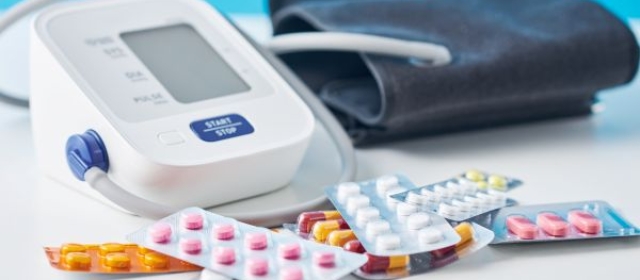
All Sexual Health Headlines
Upcoming Events

- Sexual Health Topics: Sexual Orientation & LGBTQIA+ Health
Gender-affirming surgery is available to support transgender individuals in aligning their physical characteristics with their gender identity and alleviating gender dysphoria. Gender dysphoria occurs when an individual feels distressed by a disconnect from their own body due to their gender identity not aligning with their sex assigned at birth. For transgender women, gender-affirming surgery may consist of breast implants, facial feminization surgery, or vaginoplasty, and often all of them together.

- Sexual Health Topics: Men’s Sexual Health, Sexual Health Management & Treatments
Circumcision, where the foreskin of the penis is surgically removed, is an extremely common procedure performed in both pediatric and adult urology practices. Outside of religious reasons (common among pediatric patients), adults may choose to be circumcised for a variety of other reasons such as visual aesthetic, penile cancer, and to prevent infections.

- Sexual Health Topics: Women’s Sexual Health
Urinary tract infections (UTIs) occur when bacteria enter the urinary system through the urethra and spread to the bladder. Most UTIs remain in the bladder, but if they reach the kidneys, it can become a more serious health concern. Common symptoms include a burning sensation while urinating (dysuria), cloudy or pink urine, and frequent urges to urinate, regardless of bladder fullness. Over half of all women will experience at least one UTI in their lifetime, and up to 2.8% will develop recurrent UTIs (rUTIs), defined as three or more UTIs in a year or two or more within six months. Roughly 60% of rUTIs are linked to sexual activity, which may introduce bacteria into the urethra, while others result from hormonal changes due to menopause.

- Sexual Health Topics: Sexual Health Management & Treatments
Artificial intelligence (AI) has allowed for a multitude of improvements in medicine. Particularly, in the field of urology, AI has been used extensively in the processes of diagnosis, treatment planning, assessing the effectiveness of surgeries, and more. Beyond that, AI has been integrated into a variety of medical fields for diagnosis, education, and patient care. Perhaps with further analysis as to the effectiveness and ethics of AI, sexual health may be able to reap the benefits as well.

- Sexual Health Topics: Women’s Sexual Health, Mental Health & Psychology
Vulvodynia is a chronic condition that affects the vulva with no clear cause, causing pain, burning, or irritation that lasts at least three months. Researchers believe that the development of pain-related systems in those diagnosed with vulvodynia may be caused by alterations in the central nervous system and the peripheral nervous system. Specifically, previous research suggests the pain experienced from vulvodynia is a result of central sensitization, which is the hypersensitivity of areas in the brain that are responsible for acute pain processing.

- Sexual Health Topics: Men’s Sexual Health, Women’s Sexual Health
Temporomandibular disorders (TMDs) revolve around chronic pain and other clinical conditions affecting the temporomandibular joint (TMJ), the muscles involved in chewing (mouth and jaw muscles), and other structures in that region. These disorders affect around 31% of adults and can present as pain in the TMJ, limited jaw movement (lock jaw), cracking or popping noises within the joint during jaw function, and more.
According to a 2024 empirical study, there are almost no other studies pertaining to the implications of TMDs in regard to sexual health or sexual functioning. However, this research review did highlight some key aspects of TMD in relation to sexual health based mostly on patient testimonies and patient educational resources.

- Sexual Health Topics: Men’s Sexual Health, Sexual Health Management & Treatments
Peyronie’s disease (PD) is a disorder in the penile tunica albuginea, which is just under the skin of the penis and surrounds the tissue that creates and maintains erections. It can cause penile deformity, namely curvature, and pain, and can negatively impact quality of life. This could be due to curvature severity, loss of length or girth, and even erectile dysfunction (ED). ED is quite common in patients with PD, ranging from 31.5% - 54.4% of patients in existing literature.

- Sexual Health Topics: Men’s Sexual Health, Sexual Health Management & Treatments
Multiple sclerosis (MS) is categorized as a progressive chronic inflammatory disorder that negatively impacts both physical and mental health, with around 2.8 million individuals affected globally. It has been found that sexual dysfunction occurs in males with MS (MwMS) nine times more frequently than with any other neurological disease. In fact, many MwMS see sexual dysfunction as the most detrimental part of their disease, which then negatively impacts other aspects of their health and quality of life. It has been suggested in previous research that a combination of psychological, physical, and social factors may contribute to the onset of sexual dysfunction. Namely, the presence of disability, depression, anxiety, fatigue, and hormonal imbalances can cause erectile dysfunction.

- Sexual Health Topics: Men’s Sexual Health, Medications & Sexual Health
Beta blockers, most commonly used for heart problems and hypertension (low blood pressure), have notoriously been problematic for the erectile function of biological males, often increasing the risk of erectile dysfunction (ED), which is defined as the inability to maintain an erection long enough to engage in a satisfactory sexual experience and is a common issue in male sexual medicine.

- Sexual Health Topics: Women’s Sexual Health, Mental Health & Psychology, Sexual Health Management & Treatments
Provoked vulvodynia is pain felt in the vulva for at least three months without a known cause. This can be triggered by touch or pressure in the vulva, possibly from both sexual and non-sexual stimuli. According to a 2019 study, about 10% of individuals across Europe are affected by provoked vulvodynia, which often results in pain during intercourse.

- Sexual Health Topics: Women’s Sexual Health, Sexual Orientation & LGBTQIA+ Health
Sexual minority women (SMW), including lesbian, bisexual, and queer women, often face more physical and mental health challenges than heterosexual women, such as higher rates of anxiety, depression, and PTSD. They are also less likely to have health insurance and may experience barriers to medical care.

- Sexual Health Topics: Women’s Sexual Health, Mental Health & Psychology
Sexuality is an important part of life, affecting both physical and mental health. Regular sexual activity has been linked to benefits like a lower risk of certain diseases and improved well-being. While studies show that sexual activity is associated with better mental health, research specifically on women remains limited.

